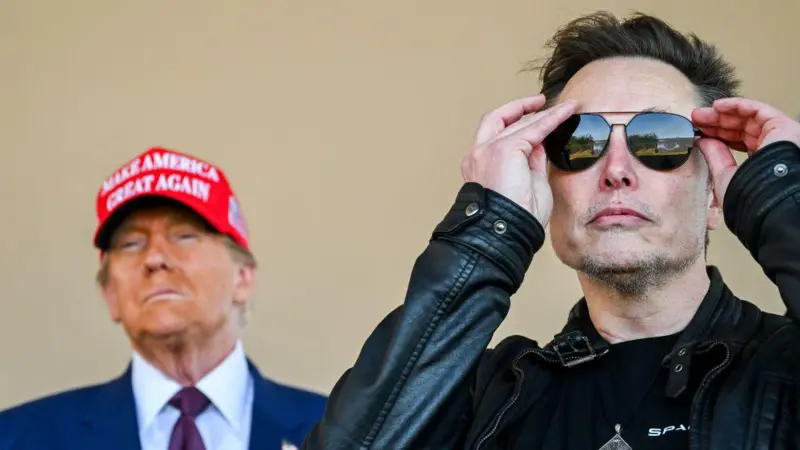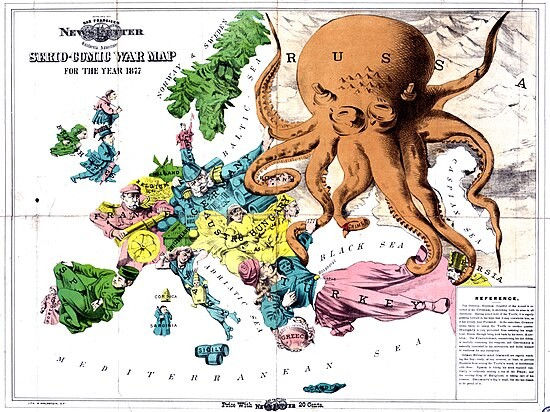Trump resuscitates Canada's Liberal Party
- Pablo Díaz Gayoso

- May 22, 2025
- 5 min read
Looking back just 100 days ago, most would have said that Canada was living the end of a cycle. The decade-long rule of the Liberal Party, led by the charismatic Justin Trudeau, seemed to be coming to an end. Not surprisingly: at the time, polls showed the opposition Conservative Party with a solid lead, with more than 44% of the vote. On the other hand, the Liberal Party was at 20%, an all-time low only surpassed by the 18.91% of 2011. However, something happened in those 100 days that would irreversibly change Canadian politics: the arrival of Hurricane Trump to the presidency of its southern neighbor.

Trump's return to the White House has been like electroshock therapy for the entire world, and even more aggressively for his North American neighbors (for more: The geopolitics of Trumpist imperialism). US-Canadian relations have deteriorated rapidly; 3 out of 4 Canadians currently dislike Trump and more than half consider the US to be a hostile power. Not for nothing, as threats to Canadian sovereignty by Trump have become a constant. In both official and unofficial statements, he has referred to the former Canadian prime minister as “Governor Trudeau” and Canada as the “51st state.” Far from taking this rhetoric as an innocent eccentricity, Canadian voters genuinely feel threatened. 25.2% of respondents believe that the top issue in this election, after the cost of living, is relations with the United States. Most voters believe the most important thing is to elect the leader or political party best suited to deal with U.S. threats to Canada's economy and sovereignty.
Finally, on Saturday night at 8:14 p.m. local time, there was an attack on the Filipino-Canadian community in Vancouver. This attack occurred while they were celebrating Lapu Lapu Day, a holiday honoring a 16th century Filipino anti-colonialist leader. This violent act took the form of a mass shooting aimed at the participants, resulting in 9 deaths. Similar attacks occurred in Germany in the run-up to the early general elections on February 23rd Quo Vadis, Berlin
Having established the context in which these elections are taking place, let's get to know the political actors involved in the process.
Liberal Party of Canada (LIB) - Mark Carney
The Liberal Party is the oldest party in Canada, and by a significant margin. Founded in 1867, coinciding with the creation of the Dominion of Canada, a colonial political precedent for self-government, the party has been a presence in Canadian politics ever since. It has played the role of main opposition party (except in 2011, when it came in third place) and has also led the government. Ideologically, it aligns itself with center-left liberalism, advocating the welfare state with a focus on universal healthcare, bilingualism, multiculturalism and multilateralism. In the social sphere, it is a progressive party in the European style, supporting equal marriage, legalization of abortion, euthanasia and cannabis.

The party's leader is Mark Carney, former governor of the Bank of Canada (2008-2013) and the Bank of England (2013-2020). Carney, originally from the Northwest Territories, was elected in a primary process held between February and March 2025, following the resignation of Justin Trudeau. Since then, he has served as prime minister. One of his first measures as Chief Executive was to ask the Governor General (representative of Charles III) to dissolve Parliament and call early elections. His election is interpreted as a firm commitment by the liberal political elites to strengthen Canada's ties with Europe and the United Kingdom, in a context of confrontation with the United States.
Election polls give him a 90% chance of winning the elections, with or without a parliamentary majority. This percentage is mainly due to the transfer of votes shown by the polls from the Bloc Québécois and the New Democratic Party.
The Conservative Party of Canada (CON) - Pierre Poilievre
The Conservative Party was born in 2003 as a result of the merger between the former Reform Party and the Progressive Conservative Party. Since its foundation, they have only governed under the leadership of Stephen Harper, during the period from 2006 to 2015. During Trudeau's tenure, the party's internal instability has stood out, as its leadership has gone through five different incumbents. It is a center-right party that, under the leadership of Pierre Poilievre, has become more aligned with the global populist right, adopting libertarian characteristics.

Pierre Poilievre, originally from Alberta, is a long-serving politician who was first elected in 2004 and held ministerial positions in Harper governments. Although after Trump's victory in November and the announcement of increased tariffs he has tried to take some distance from him, Poilievre was perceived as a more moderate version of the leader of the MAGA movement. Their “Canada First” policy is focused on reducing the number of asylum seekers and combating irregular migration. They also oppose nationalism in Quebec, a federal region where they get their worst results.
The New Democratic Party (NDP) - Jagmeet Singh
The NDP is the second oldest party in the Canadian House of Commons, founded in 1961. The party is to the left of the Liberals and draws its inspiration primarily from social democracy and democratic socialism. The New Democrats support an increase in universal health care benefits, including access to oral, mental, vision and hearing health care.

The leader of the NDP since 2017 is Jagmeet Singh, originally from Ontario. Singh is the only candidate belonging to an ethno-religious minority in this election, the Sikhs. This fact is remarkable, as he has repeatedly expressed his support for Sikh secessionist groups in India, which has cost him the revocation of his visa on several occasions. Moreover, his religious confession came to prominence in 2023, when Indian intelligence agents assassinated Canadian-Sikh activist Hardeep Singh Nijjar.
On the Quebec question, the New Democrats have defended the Quebec people's right to decide. Similarly, they have advocated making Canada a republic independent of the British monarchy.
Bloc Québécois (BQ) - Yves-François Blanchet
The Bloc Québécois (BQ) is a nationalist separatist party in the French-speaking region of Quebec. This party seeks to create the necessary conditions for Quebec's independence, in contrast to more extremist political options that advocate a more confrontational and less gradualist strategy. The BQ supports measures against climate change, LGBTQ+ rights, abortion rights, the abolition of the monarchy and a ban on Quebec officials wearing religious attire.

Yves-François Blanchet has been the leader of the BQ since 2019, and under his leadership the nationalist movement has seen its electoral chances reduced. Although it managed to improve its results between the 2015 and 2021 elections (from 10 to 31 deputies), current polls place it behind the Liberal Party, losing a third of its seats. In the context of the confrontation with the United States, the nationalist sentiment that has gained strength has been Canadian, not Quebecois..
Most likely election results
These early elections are being held this Monday, April 28, 2025. As we have analyzed above, this is not an ordinary election. The Trump factor has profoundly influenced the decision process of Canadians. So much so that, as can be seen in the graph, during the months of the new US administration, Canada's political-electoral landscape has changed dramatically.

The impact of Trump's arrival has been so significant that it has outweighed the attrition of the Liberals. This, coupled with the party's new leadership with Carney at the helm, means that the predictable Liberal victory could extend their dominance for another decade over the world's second largest country.










Comments